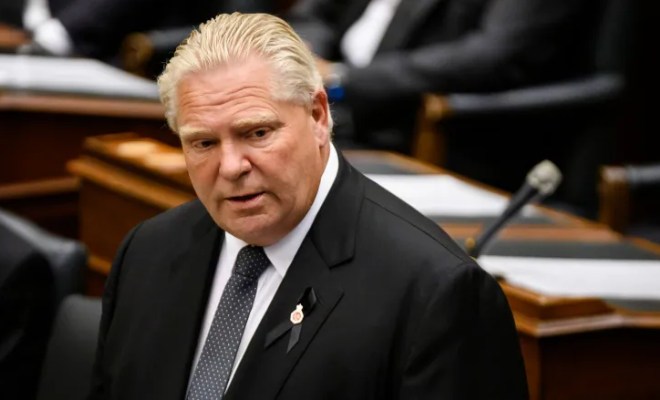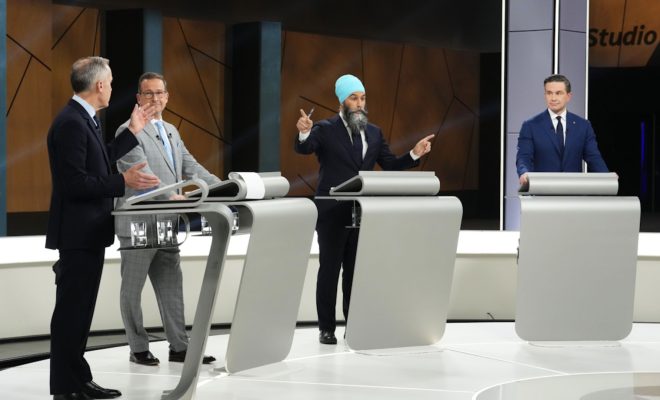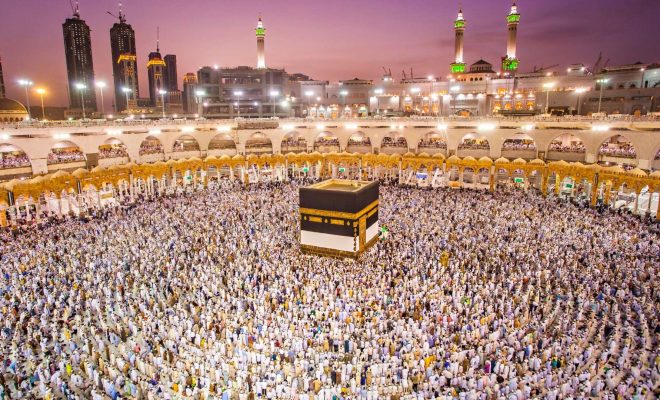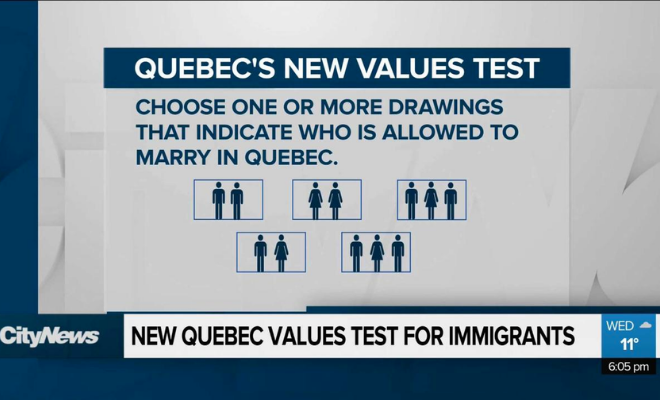The Despotism of Democracy: Is it This Easy to Get Rid of Our Rights?

Issue 253 – Jumada al Awwal 1444 | December 2022
As the year comes to a close, it is vital to reflect on what we as the Muslim community in Canada have experienced, so we can take stock of where we are and begin to chart our path forward.
During a time of increased hostility towards cultural and religious minorities, it is especially relevant for us to examine the nature of the rights we have been promised in this country, and our relationship with the institutions that are supposed to guarantee them.
Do Our Rights Still Stand?
At the beginning of this month, Ontario’s premier Doug Ford pushed through Bill 28, a law that would make it illegal and punishable by a $4,000 fine for teachers to strike as part of their effort to secure a new collective bargaining agreement.
Though this bill would run contrary to the Constitution, as the Supreme Court has declared striking to be a Charter right, the Ontario government planned to push through the law using the “notwithstanding clause”, which allows for a law to be exempt from judicial review for a number of years.
Muslims are no strangers to the notwithstanding clause. Recall, it was this same clause that was used by the Quebec government to pass Bill 21, the law that prevents our sisters in hijab from taking on many public service jobs in Quebec. A court in Quebec clearly ruled that the law violates the charter rights of Muslim women, but said that it could not stop it because of the notwithstanding clause.
Nor is this rejection of constitutional rights limited to provincial governments. The Prime Minister himself is currently facing an inquiry into his use of the Emergency Powers act to seize the assets and detain participants of the Freedom Convoy. The Canadian Civil Liberties Association is suing the government declaring the use of emergency power unconstitutional.
These many attacks on the rights that we were allegedly “guaranteed”, leads to an obvious question, what protection does the constitution actually provide?
The Compromise
To understand the fragility of the rights that Canada offers, we must understand that the basis of these rights are not built on unshakeable principles, rather, they are negotiated through compromise.
Take the notwithstanding clause. It is built on a compromise between ‘freedom’ and democracy.
Pierre Elliot Trudeau’s introduction of the Charter of Rights and Freedoms in Canada, which would enshrine certain rights as inviolable by any law or act of government, was opposed by the provinces.
They argued that such a document would take away their democratic power to make laws in the interest of their community. If an elected provincial government enacted some law, it could be struck down by a federal court for violating the charter.
As a compromise, the federal government gave the provinces the power to invoke the notwithstanding clause. This would make their law unchallengeable by the courts. This means that any opportunistic government can campaign on and enact an oppressive law, and then use the notwithstanding clause to prevent this law from being struck down by the Courts, including the Supreme court.
This compromise is echoed in the Emergency Powers Act as well.
While the Act restricts the use of extraordinary powers by the government to emergencies, the definition of an emergency is determined by the government.
Consider the use of this Act during the Freedom Convoy events. The protest, which converged on Ottawa, lasted 3 weeks. During this time, residents of Ottawa complained about excessive noise, lost sleep, and experienced harassment on the streets. The police was seen as useless in helping the residents of Ottawa address any of these issues.
None of this was declared an emergency, even though a disruption to public order is considered an emergency by the Act. It was only when the protesters started forming a blockade at the US-Canada border that the Emergency Powers Act was invoked. That is, it is only when the interests of the economic elite are affected were such extraordinary measures taken.
The Reality of Rights
The truth we have to confront is that it is not our rights that are protected by the government of Canada, but the interests of the political and economic elite.
When giving us our rights is convenient and beneficial, our rights will be secure. But when our rights are at odds with the interest of the elite, it is their interests that will take precedence over our rights.
This has been shown to us in Canada time and time again.
Bill 21 faces no serious opposition from the federal government even though it is a clear violation of the constitution.
Canada profited off weapons sales to Saudi Arabia while it was causing a humanitarian catastrophe in Yemen, tramples on the treaty rights of its indigenous population, and does not think twice about supporting ethnic cleansing in Palestine.
What can be even more dangerous than the arbitrary denial of rights at the whims of the political elite is the aggressive enforcement of rights as decided by these same elite.
Under the guise of securing their rights, our children are encouraged to embrace hyper-individualism, selfishness, and a nihilistic lack of role and purpose in their relationships.
And if we as Muslims are to resist this by asserting our belief in fixed gender roles, our opposition to same-sex relationships or transgenderism, or our solidarity with our brothers and sisters in Palestine, we are branded as bigots and extremists.
We have already seen the fruits of this attitude. Our children face increased scrutiny about what they say in their high school Jumah khutbahs (scrutiny that no other student club is subject to). Trudeau can make unfounded allegations of antisemitism directed at Muslims who protested against the Zionists entity’s bombing of Gaza. The Canadian Revenue Agency is much more likely to audit Muslim charities and suspend their license, as opposed to a charity like the Jewish National Fund which buys illegal settlements in Israel.
In both cases of arbitrarily enforcing “rights” or taking them away, the authority is in the hands of fallible men.
Capitalist societies are built on the sovereignty of man and focus on the rights of the individual, so those individuals who are born with the most wealth an influence can write the laws to benefit them and can influence their interpretation.
The reality is that any system of governance that is man made in its origin will not be free of this problem. Whichever men devise the system, even if they mean well, will have their blind spots, biases, and inadequacies reflected in the system they establish.
The Islamic Response
The only way to solve this bias is to be free from the rule of men, through submitting ourselves to the rule of Allah (swt). Allah (swt) tells us in the Quran:
“But no, by your Lord, they will not [truly] believe until they make you, [O Muhammad], judge concerning that over which they dispute.” [TMQ 4:65]
It is part of our iman to refer to Allah (swt) and His Messenger to resolve any of our concerns, whether they be personal, familial, communal or on a nation level. Allah (swt) has revealed upon us a system of not just personal worship and ethics, but also an economic, social, and political system as well.
It is our obligation as an Ummah to collectively live under the rule of this system, as our Beloved Messenger (saw) told us:
The Messenger (saw) said, “Whoever dies without an oath of allegiance (bay’ah to a Khaleefah), dies the death of jahiliyya (pre-Islamic times).” [Muslim]
The hadith does not mean the one who dies without swearing an allegiance to a legitimate Muslim ruler will die a kafir, rather the reference to jahiliyah is meant to indicate the seriousness of dying in such a state of collective misguidance. And if we do not have a ruler to swear allegiance to, as in our current state, then it becomes incumbent on us to work collectively to receive genuine Islamic rule in the Muslim lands.
It is only a constitution extracted from the unshakeable ayat of Allah (swt) and the sahih ahadith of RasulAllah (saw) that can generate a set of non-negotiable set of rights for Muslims and non-Muslims.
It is this genuine Islamic rule that will lay out rights that cannot be bargained away in popularity contests as they are in democracies. They cannot be suspended or interpreted away by the political elite as they are not ordained by them. And they cannot be bought or reshaped by the economic elite.
Where is Our Hope?
Here, we have to ask ourselves a vital question.
What is our hope for the Muslim community in Canada? This goes beyond assessing our immediate material needs such as more mosques or affordable Islamic schools.
Rather, what is the vision that we have for our community decades into the future? Do we feel secure entrusting the iman and well-being of our children to a system that is built of cynical, self-interested compromise negotiated exclusively by the economic and political elite? What will happen when the existence of an Islamic practice, or the propagation of an Islamic teaching is no longer seen as acceptable by these elite?
We have seen this erosion of rights both locally in Quebec and the rest of Canada, but also in other Western democracies. In the UK, educators are held responsible by the government to report “extremist” beliefs in their Muslim students.
These beliefs are not limited to justifying violence, but also include the belief in gender roles or same-sex behavior. And while there has been an increased focus on right wing extremism in recent years, at its outset, over 60% of children referred to Prevent were Muslim.
Government watchdogs in Sweden have also reported a higher incidence of removal of children from the homes of Muslim refugee families, and have attributed this to the enforcement authorities not understanding the cultural differences between Muslims and the dominant society.
Swedish social workers acknowledge that immigrant children are more likely to be removed from their homes but blame this on the parents for refusing to follow the instructions of the Swedish government. The integration minister in Sweden laid the blame on parents who had “failed at parenting”, and the Swedish government was quick to blame the activists who protested these child abductions as nefarious and working with terrorist groups.
The Open Society Justice Initiative studied laws against Muslim women’s dress across 27 EU countries, and noted how rising Islamophobia was fueling more attempts to ban religious wear for our sisters. It found that while many of these attempts were blocked by civil rights groups, the EU courts was more likely to let private companies ban the hijab in their workplace.
Ultimately, we have to face the reality that if we are serious about preserving the Islam of our children and future generations, we have to commit ourselves to the global effort to revive Islam in the Muslim lands.
It is there that we have hope of implementing the complete system of Islam, which will provide protection for the physical and Islamic wellbeing of our young. It will also be a beacon of light for anyone who is seeks the truth, or prefers Islam’s security over the lawlessness of Capitalism.
A Negotiated Existence
There are some, who when faced with the looming threats to our religious life in Canada, are quick to mobilize the Muslims behind some secular party or politician, in hopes that if we just all voted correctly, we would be able to protect our community.
If we just spoke with enough wisdom around the police officers, CSIS agents, journalists, and elected officials who we engage with us, the Canadian state would no longer be a threat to our deen or the deen of our children.
While the concerns and the efforts of these Muslim activists are sincere, and while there may be some short term benefit in the strategies they propose, ultimately, there is no safety for the Muslims under man-made law.
All political parties are subject to the whims of the masses, who are easily influenced by the media campaigns of the elite.
The police, courts, army and public safety officials serve the interests of these elite, and protect a public order that facilitates their accumulation of wealth for these elite. And all government institutions are controlled by the Constitution and legislation, which is drafted by fallible men with vested interests.
This entire ruling structure is built without any guidance from the revealed words of Allah (swt), how can we expect to find justice or protection in this case?
To try to negotiate our religious existence in this country in this context is not a good long term strategy.
It is similar to a wife and her children trying to negotiate their existence under the roof of a man who is a violent drunk. Hiding his bottles, or getting out of his way when he is in a bad mood might work in the short term, but ultimately there will be no safety for his family until they are able to secure their lodging and funds independent of him.
Similarly, there is no safety for the Muslims until we are able to restore Islam in the Muslim lands. Without having a state that is empowered to use its resources in protecting Islam, conveying its message to the world, and defending the interests of the Muslims, we will always be in danger.
Living in Canada
A question must be asked: as we live in Canada, how can we help with the global effort to make Islamic change in the Muslim lands?
Living here, we have the relative prosperity and security to do what many in the Ummah cannot.
We need to connect ourselves with our aqeedah, ensuring that we are forming our personality and character on the basis of reliance on Allah (swt) alone, and obedience to His Messenger (saw).
We need then to be exposed to the issues facing our community, both the local youth and elders, and the global condition of the Muslims. As we examine these issues, we need to learn the ahkam of Islam, both as they apply to our individual issues, and to the Ummah as a whole.
We need to use our collective platforms to call for the return of the rule of Islam in the Muslim lands, the Khilafah state, so that the oppressed all over the world, both Muslim and non-Muslim can find peace and tranquility under its shade.
As previously mentioned, it is a collective obligation upon the ummah to work for the revival of the Khilafah. To learn more about how to use your skills and resources to support this effort, send us a private message on Facebook and we’ll get back to you right away, inshAllah!









